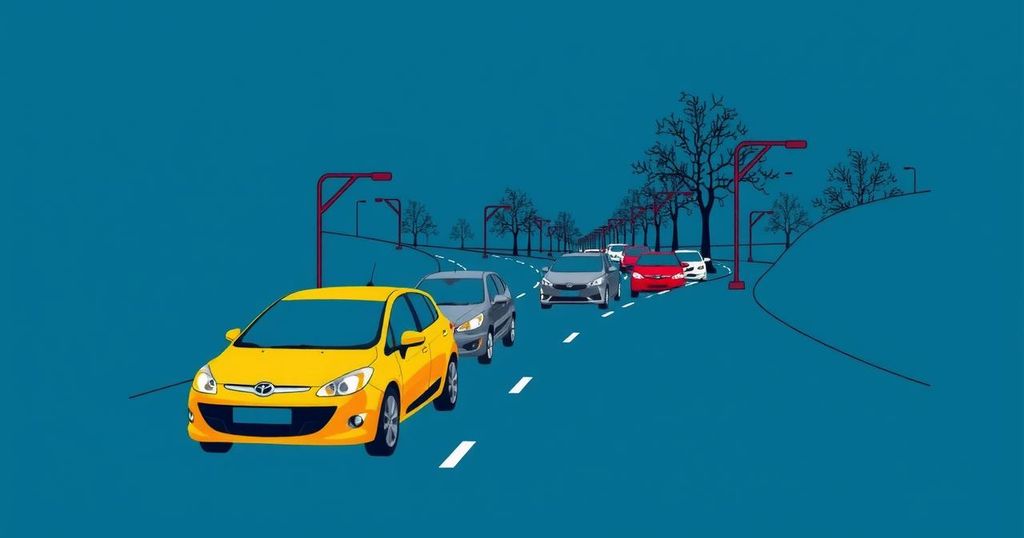Strategic Shift: Confronting Car Dependence for a Sustainable Future
The Union of Concerned Scientists has released a report indicating that by reducing car dependence, the U.S. can achieve significant economic and environmental benefits. Aiming for a 27% reduction in vehicle miles traveled by 2050 could save $6.2 trillion and avoid numerous public health costs while addressing climate change. The report advocates for diversified transportation options to foster equity and sustainability.
A recent study, conducted by the Union of Concerned Scientists and titled “Freedom to Move,” emphasizes that reducing car dependence in the United States could yield not only substantial environmental benefits but also significant economic gains. It posits that strong policies targeting decreased reliance on personal vehicles would lead to a projected savings of $6.2 trillion, largely benefiting U.S. residents. The report advocates for diversified transportation options, asserting that shifting land-use patterns and enhancing infrastructure for walking, biking, and public transportation could facilitate a vital transition to net zero emissions by 2050. Specifically, the study proposes a reduction of vehicle miles traveled (VMT) by approximately 27 percent by 2050. This goal, notably less ambitious than existing targets in California and Washington, could prevent the need for around $201 billion in new energy infrastructure, necessary for the powering of millions of electric vehicles. Additionally, an estimated $128 billion in public health costs associated with emissions could be avoided, alongside the potential to spare around 250,000 lives lost due to traffic accidents. In total, American individuals could collectively save $5.9 trillion on car payments, fuel, insurance, and other vehicle-related expenses, even if not all households completely abandon driving. Kevin Shen, the lead author of the report, remarks, “What we find is that reducing VMT and making sure to provide more transit options would be the most equitable way to make these kinds of changes…” He suggests these changes do not necessitate complete cessation of car usage; rather, communities could adjust to share resources more efficiently, utilizing alternatives such as e-bikes. However, the authors of the report acknowledge the formidable challenges posed by entrenched automotive culture and the lobbying efforts of car-centric industries, which have significantly shaped transportation policy over the last century. Shen notes, “This is not just a ‘today’ problem…” elucidating the intricate web of interests that favor automobile dependency and hinder progress towards a more equitable transportation framework. The findings of this study highlight that nearly 30 percent of U.S. residents do not drive, whether due to age, disability, lack of a license, or financial constraints. The study calls for a reevaluation of the notion of freedom, proposing that it should encompass more than just the freedom to operate a vehicle, advocating for the freedom of choice in transportation.
The topic of car dependence in the United States is intertwined with significant social, environmental, and economic issues. The reliance on automobiles not only exacerbates climate change but also contributes to public health challenges and economic burdens, particularly for lower-income households and individuals who cannot drive. Past transportation policies have favored the automotive and oil industries, often at the expense of public transit and alternative transportation modes. This shift in focus from car dependency towards diversified travel options is essential for achieving climate objectives and enhancing equity.
The study underscores the critical need to confront car dependency, indicating that strategic policy changes could yield considerable environmental and economic benefits. By reducing vehicle miles traveled and enhancing public transportation, communities can achieve a more sustainable and equitable transportation system, ultimately supporting national goals for decarbonization while fostering economic savings for residents.
Original Source: usa.streetsblog.org




Post Comment